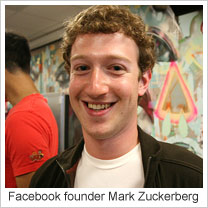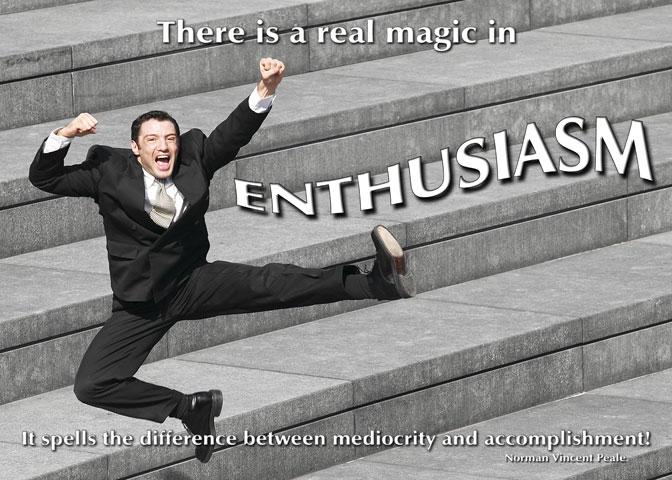Psychological mistakes startups
There are a lot of articles on how to create a startup properly. A lot is said about the role of the team in the project. But at the same time, the fact that the personality of the startup person, his psyche and mental processes are firmly integrated into the project and constitute with it an inseparable whole is unfairly omitted. Creating a startup is a process in which the cognitive processes of all participants influence each other, and DIRECTLY on the result.

Attention!
The terminology does not coincide with the classical, although some elements are present in it. The post does not claim to be of scientific value, but serves only to illustrate the typical mistakes of people who proudly call themselves startupers. The post is based on real events, as well as on my personal observations of myself and colleagues in the workshop. I am a startup. Colleagues - too.
')
So here are some typical mistakes, some of which look like symptoms:
“Spyophobia” is a fear of telling anyone about your idea, especially (God forbid!) To a profile investor. What if they steal it? In reasonable concentrations, this phobia is not devoid of meaning, but too often it leads to the death of an idea within itself or by the time “oh, damn it, ahead”.

“Settlement manipulation” is a kind of escapism, when a start-up is attached to his idea, often ignores common sense and begins to manipulate the numbers of business calculations to justify it. This is a reflexive reaction of the brain that must be firmly suppressed by self-awareness.
“Miniaturization” - a start-up, being an ordinary person with subconscious fear, treats large amounts and tries to diminish the amount of investment, believing that thereby he will increase the attractiveness of the idea in the eyes of the investor.
“Hyperbolization” is the reverse effect of miniaturization. It is observed when the startup has an internal installation for “freebie”. Often, with this, the start-up efforts are aimed at obtaining investment, and not at the success of the project.
“Greed” - the start-up seeks to monetize the service from the very first seconds of its existence, plans to recoup it in a short time and mentally makes a list of acquisitions and a photo in Forbes. The result - the collapse and frustration.

“Frustration” is a sense of hopelessness resulting from placing excessive hopes on your startup. In small doses, it works as a sobering means, and in large doses it can permanently discourage the desire to start up.
“Restricted Horizon” - a start-up (often being a developer) is limited in its calculations only to the area of development, ignoring or neglecting such stages as promotion and operation. Hammer everywhere is looking for nails.

“Concentration on yourself” - a person sincerely believes that everything depends only on him and his qualities, and the better he is, the greater the results he will achieve. The influence of chance and the influence of other subjects (colleagues, investors, partners) is not taken into account. As a result, a person is absorbed by internal processes, self-observation. Its efficiency drops, and dependence on other people's opinions increases.
“Gigantomania” - this feeling is familiar to almost everyone who watched the film “Social Network”. How can you resist the temptation to dream about the global? After all, it seems so easy to come up with something and immediately go to the stratosphere. Gigantomania is often fueled by envy and pride. But in combination with rationalism it can even be useful.

“Grasping a straw” - faced with the apparent incapacity of his startup, the person continues to hold on to him with all his strength, unable to admit to himself that he miscalculated. A kind of fear of self-deprecation.
"Donkey Syndrome" or the usual stubbornness - often found in combination with "grabbing a straw." The state of a person in which he is immune to external signals from whoever they come from.

“Justification” (or scientifically “rationalization” - comment by jeck_landin commentator) making reflexive decisions, the start-up brain post factum seeks a rational explanation for them and replaces the memory with a more “suitable” one. When you ask such a person what he thought when he made a catalog of goods without prices, as a rule, a surprisingly logical and reasonable answer follows. At the same time, everything is also notclear why the client catalog without prices.
“Cognitive dissonance” - when confronted with two opposing ideas or concepts, and being unable to disprove any of them, a person begins to look for an explanation (often not existing). For example, on the one hand being confident in his mega-intelligence, and on the other hand faced with the objective failure of his brainchild, a person comes up with a hypothesis in the spirit: “the world is not yet ready for this idea”.
“Beech syndrome” - under adverse conditions, for example, when meeting with the opposite opinion of a more authoritative person, the unfriendly behavior of the project team, the fear of uncertainty in a person, the defense mechanisms are activated, it closes, and its ability to think reasonably rapidly decreases. The vital activity of the individual becomes similar to the tree beech. They are also called impaired.

“Rejection” - when confronted with the opposite opinion of other people (even if true), primitive parts of the brain perceive it as a danger and enter into a confrontation with rational thinking, thus blocking any dissent.
“Startup Awareness” - a person enthusiastically embarks on a new idea. But it burns exactly as long as it takes to move from the world of ideas to action in the real world. Faced with unavoidable difficulties, the startup manager leaves the project started and with the same enthusiasm enters a new one. Startupman, as a rule, ends badly - either with nervous exhaustion, or financial.

The list is certainly incomplete. If you are ready to make a contribution to the development of the emerging science of clinical startup science - Wellcome.
Update July 29, 2011. So, as promised, I post suggestions from commentators to the post body.
“Competition phobia” or “Wet Pants Syndrome” - a start-up, avoids competitive markets, or seeing that someone else has already started working in this direction, quits his start-up. As a rule, this behavior is caused by low self-esteem and lack of will to win.
“Obsession” is an extreme degree of enthusiasm for startups, when all other, even obviously more profitable options associated with employment are ignored. There is also an alternative name for this passion - “the syndrome of a free artist”. Perhaps such a person is also afraid of competition, but not at the level of the product, but at the level of personal professionalism.
"Perfectionism" or "inflated ambitions" - the desire to make perfect. Due to the unattainability of the ideal, the development time is delayed down to infinity. Perfectionism is often fueled by an inferiority complex. Moreover, the perfectionist himself, as a rule, is secretly proud of his “striving for perfection”.
“Imaginary Action Syndrome” is an unproductive activity whose goal is not the success of the project, but the process itself. Instead of solving the main tasks promoting the project to the goal, all the working time is absorbed in the work on secondary matters.
“Finish syndrome at the start” - an imaginary feeling of success and completeness at the stage of the project “into circulation”. As a result, the owner of the process is relaxed and the entire project is rotting due to the lack of adequate support and promotion.
“Pile of a non-killed bear” in combination with “Overtightening a blanket over yourself” - the behavior of the main participants of a startup, in which the project falls apart under the pressure of internal centrifugal forces. This leads to: the uncertainty of roles in the team, the inability to adequately assess the contribution of each participant, the inability to agree and come to a consensus, greed.
"Infallibility" - the final and perhaps the most important mistake. Psevdoprofi, who has read all of the above errors, says: "this is not about me, I am a professional, and I will never make such mistakes." In this case, the reflection blocking occurs, the person's self-control is turned off. He remains unprotected from the dangers of coming from within himself. A true professional always remembers that he can make a mistake and is very attentive to his own thoughts and feelings, he is always on his guard.
Thank you all for the comments! But the post is not closed. Periodically, it will be updated with new syndromes, phobias and deviations. Write to.

Attention!
The terminology does not coincide with the classical, although some elements are present in it. The post does not claim to be of scientific value, but serves only to illustrate the typical mistakes of people who proudly call themselves startupers. The post is based on real events, as well as on my personal observations of myself and colleagues in the workshop. I am a startup. Colleagues - too.
')
So here are some typical mistakes, some of which look like symptoms:
“Spyophobia” is a fear of telling anyone about your idea, especially (God forbid!) To a profile investor. What if they steal it? In reasonable concentrations, this phobia is not devoid of meaning, but too often it leads to the death of an idea within itself or by the time “oh, damn it, ahead”.

“Settlement manipulation” is a kind of escapism, when a start-up is attached to his idea, often ignores common sense and begins to manipulate the numbers of business calculations to justify it. This is a reflexive reaction of the brain that must be firmly suppressed by self-awareness.
“Miniaturization” - a start-up, being an ordinary person with subconscious fear, treats large amounts and tries to diminish the amount of investment, believing that thereby he will increase the attractiveness of the idea in the eyes of the investor.
“Hyperbolization” is the reverse effect of miniaturization. It is observed when the startup has an internal installation for “freebie”. Often, with this, the start-up efforts are aimed at obtaining investment, and not at the success of the project.
“Greed” - the start-up seeks to monetize the service from the very first seconds of its existence, plans to recoup it in a short time and mentally makes a list of acquisitions and a photo in Forbes. The result - the collapse and frustration.

“Frustration” is a sense of hopelessness resulting from placing excessive hopes on your startup. In small doses, it works as a sobering means, and in large doses it can permanently discourage the desire to start up.
“Restricted Horizon” - a start-up (often being a developer) is limited in its calculations only to the area of development, ignoring or neglecting such stages as promotion and operation. Hammer everywhere is looking for nails.

“Concentration on yourself” - a person sincerely believes that everything depends only on him and his qualities, and the better he is, the greater the results he will achieve. The influence of chance and the influence of other subjects (colleagues, investors, partners) is not taken into account. As a result, a person is absorbed by internal processes, self-observation. Its efficiency drops, and dependence on other people's opinions increases.
“Gigantomania” - this feeling is familiar to almost everyone who watched the film “Social Network”. How can you resist the temptation to dream about the global? After all, it seems so easy to come up with something and immediately go to the stratosphere. Gigantomania is often fueled by envy and pride. But in combination with rationalism it can even be useful.

“Grasping a straw” - faced with the apparent incapacity of his startup, the person continues to hold on to him with all his strength, unable to admit to himself that he miscalculated. A kind of fear of self-deprecation.
"Donkey Syndrome" or the usual stubbornness - often found in combination with "grabbing a straw." The state of a person in which he is immune to external signals from whoever they come from.

“Justification” (or scientifically “rationalization” - comment by jeck_landin commentator) making reflexive decisions, the start-up brain post factum seeks a rational explanation for them and replaces the memory with a more “suitable” one. When you ask such a person what he thought when he made a catalog of goods without prices, as a rule, a surprisingly logical and reasonable answer follows. At the same time, everything is also not
“Cognitive dissonance” - when confronted with two opposing ideas or concepts, and being unable to disprove any of them, a person begins to look for an explanation (often not existing). For example, on the one hand being confident in his mega-intelligence, and on the other hand faced with the objective failure of his brainchild, a person comes up with a hypothesis in the spirit: “the world is not yet ready for this idea”.
“Beech syndrome” - under adverse conditions, for example, when meeting with the opposite opinion of a more authoritative person, the unfriendly behavior of the project team, the fear of uncertainty in a person, the defense mechanisms are activated, it closes, and its ability to think reasonably rapidly decreases. The vital activity of the individual becomes similar to the tree beech. They are also called impaired.

“Rejection” - when confronted with the opposite opinion of other people (even if true), primitive parts of the brain perceive it as a danger and enter into a confrontation with rational thinking, thus blocking any dissent.
“Startup Awareness” - a person enthusiastically embarks on a new idea. But it burns exactly as long as it takes to move from the world of ideas to action in the real world. Faced with unavoidable difficulties, the startup manager leaves the project started and with the same enthusiasm enters a new one. Startupman, as a rule, ends badly - either with nervous exhaustion, or financial.

The list is certainly incomplete. If you are ready to make a contribution to the development of the emerging science of clinical startup science - Wellcome.
Update July 29, 2011. So, as promised, I post suggestions from commentators to the post body.
“Competition phobia” or “Wet Pants Syndrome” - a start-up, avoids competitive markets, or seeing that someone else has already started working in this direction, quits his start-up. As a rule, this behavior is caused by low self-esteem and lack of will to win.
“Obsession” is an extreme degree of enthusiasm for startups, when all other, even obviously more profitable options associated with employment are ignored. There is also an alternative name for this passion - “the syndrome of a free artist”. Perhaps such a person is also afraid of competition, but not at the level of the product, but at the level of personal professionalism.
"Perfectionism" or "inflated ambitions" - the desire to make perfect. Due to the unattainability of the ideal, the development time is delayed down to infinity. Perfectionism is often fueled by an inferiority complex. Moreover, the perfectionist himself, as a rule, is secretly proud of his “striving for perfection”.
“Imaginary Action Syndrome” is an unproductive activity whose goal is not the success of the project, but the process itself. Instead of solving the main tasks promoting the project to the goal, all the working time is absorbed in the work on secondary matters.
“Finish syndrome at the start” - an imaginary feeling of success and completeness at the stage of the project “into circulation”. As a result, the owner of the process is relaxed and the entire project is rotting due to the lack of adequate support and promotion.
“Pile of a non-killed bear” in combination with “Overtightening a blanket over yourself” - the behavior of the main participants of a startup, in which the project falls apart under the pressure of internal centrifugal forces. This leads to: the uncertainty of roles in the team, the inability to adequately assess the contribution of each participant, the inability to agree and come to a consensus, greed.
"Infallibility" - the final and perhaps the most important mistake. Psevdoprofi, who has read all of the above errors, says: "this is not about me, I am a professional, and I will never make such mistakes." In this case, the reflection blocking occurs, the person's self-control is turned off. He remains unprotected from the dangers of coming from within himself. A true professional always remembers that he can make a mistake and is very attentive to his own thoughts and feelings, he is always on his guard.
Thank you all for the comments! But the post is not closed. Periodically, it will be updated with new syndromes, phobias and deviations. Write to.
Source: https://habr.com/ru/post/124921/
All Articles